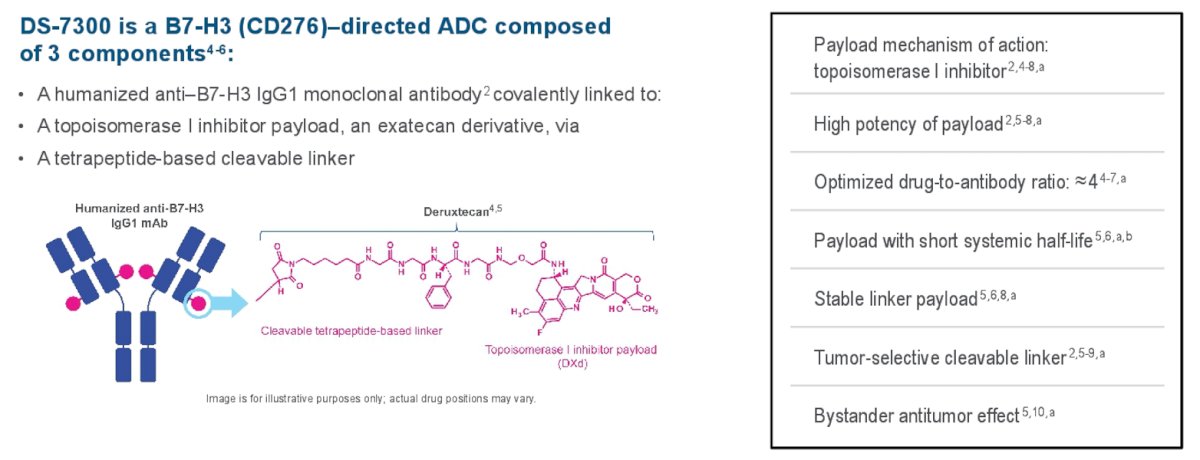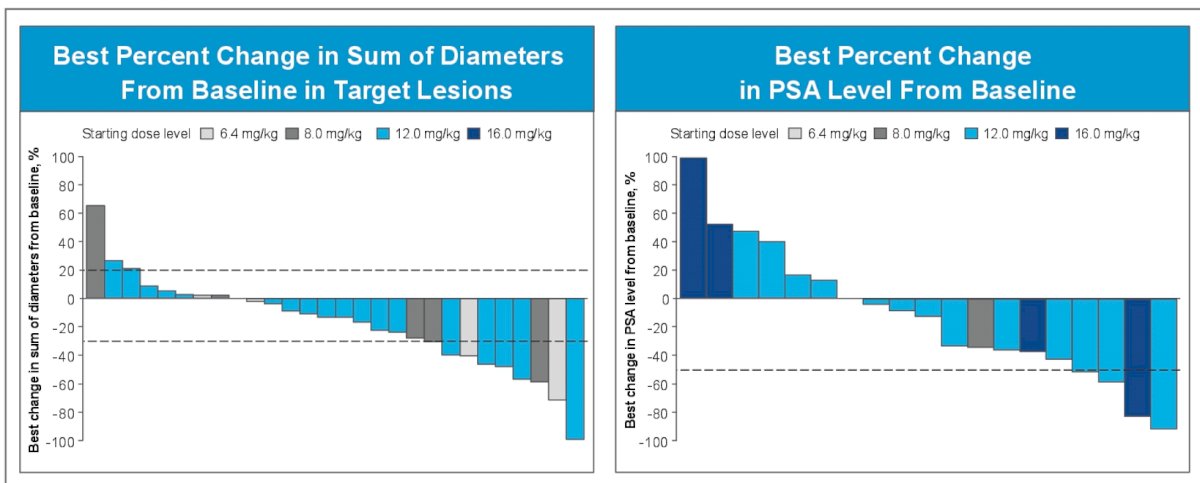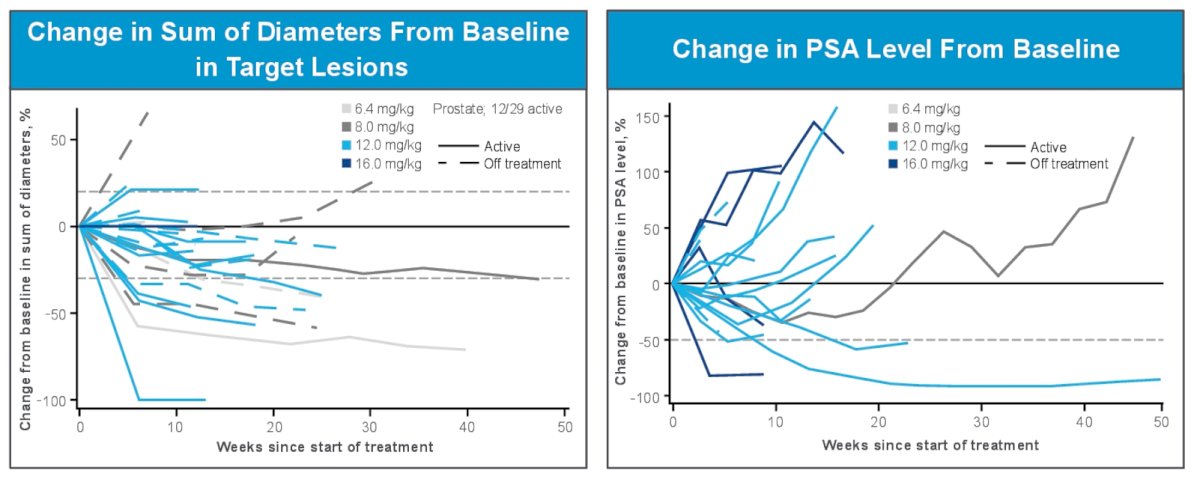(UroToday.com) The B7 homolog 3 protein (B7-H3) also known as CD276, is an immune checkpoint highly expressed in human cancers that likely has relatively pleiotropic roles in cancer biology beyond immune co-inhibition or co-stimulatory function. DS-7300 is an antibody-drug conjugate consisting of a humanized anti-B7H3-monoclonal antibody conjugated to an exatecan-derived topoisomerase I inhibitor. Early data presented at ESMO 2021 from clinical trial NCT04145622 (J101) suggested tolerability and potentially some clinical activity in esophageal squamous cell carcinoma as well as mCRPC.

In this poster, Dr. Patel and colleagues presented data from this clinical trial focused on patients with mCRPC. In total, 55 patients with mCRPC were treated with doses of DS-7300 during dose-escalation and dose-expansion phases of the trial. In total, 39 patients received the recommended dose-expansion dose of 12 mg/kg. Patients were heavily pre-treated, with a median of 5 prior therapies, including 21 patients who had received two prior lines of taxane therapy. The median baseline PSA in analyzable patients was 60.6.
Of the 29 patients with RECIST-evaluable lesions, 19 experienced some tumor shrinkage, and 9 had either a confirmed or unconfirmed partial response, corresponding to a disease control rate of 72.4%. Of 19 patients with PSA data available for this analysis, 12 experienced a decrease, including 4 patients with more than 50% reduction. 26 of the patients treated at the recommended expansion dose continue on treatment.

Spider plots for individual patient tumor size and PSA dynamics are shown below.

The most common side effects observed from treatment were nausea, fatigue, vomiting and chills. Grade 3 or higher adverse events included anemia, relative neutropenia, dehydration, diarrhea, nausea and vomiting.
The authors concluded that the heavily pretreated mCRPC patients treated on this clinical trial with DS-7300 experienced no new safety signals and there was evidence of imaging and serologic response in a subset of patients. Further investigation is ongoing.
Presented By: Manish R Patel, MD, Hematologist Oncologist at Florida Cancer Specialists and the Sarah Cannon Research Institute, Sarasota, Florida
Written By: Alok K. Tewari, MD, PhD, medical oncologist at Dana-Farber Cancer Institute, @aloktewar on Twitter during the 2022 American Society of Clinical Oncology Genitourinary (ASCO GU) Cancers Symposium, Thursday Feb 17 – Saturday Feb 19, 2022


